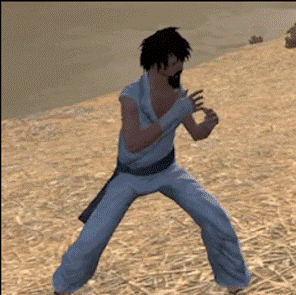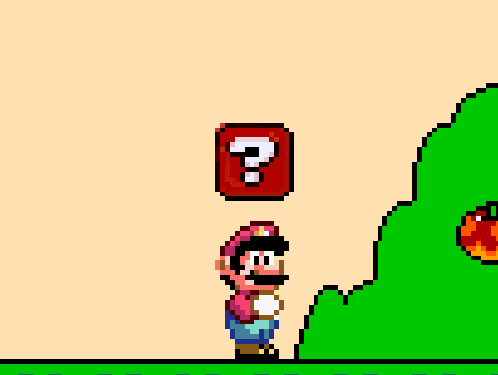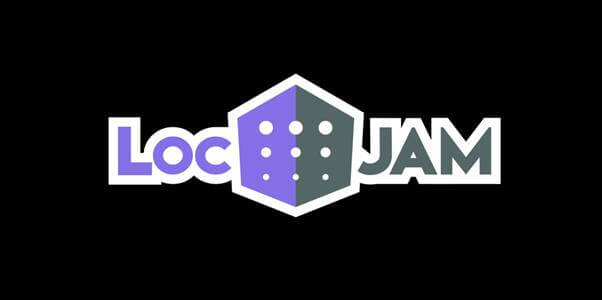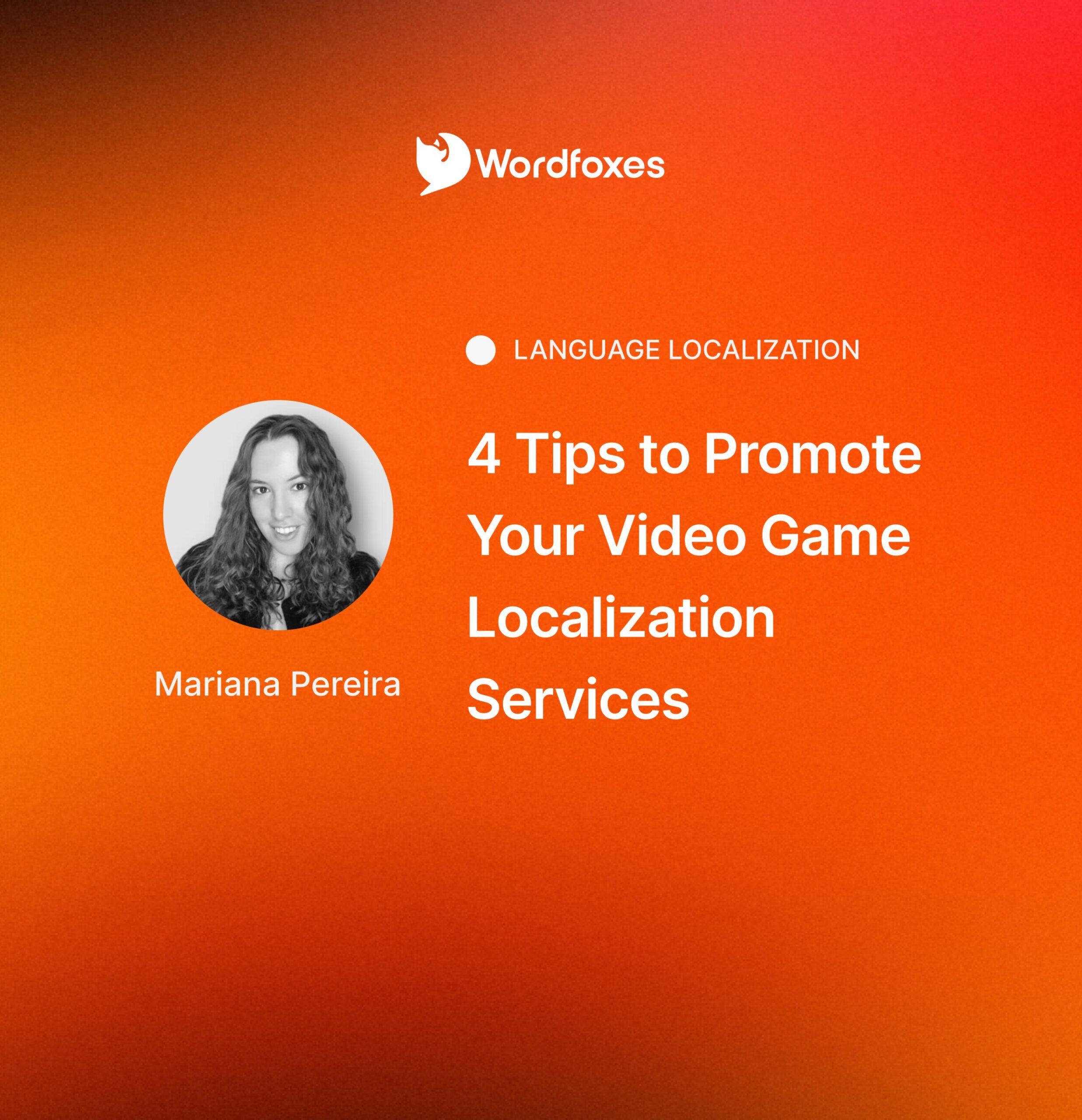Video game localization is one of the most exciting fields in the language industry. Maybe you dream of being a part of video game development on the language side, helping an international audience experience great stories through your lens. But information is spread thin.
There are no traditional education institutions offering a specific course for it. You might be wondering what a video game localization career actually looks like, what kind of experience and education you need, and where you can find work. Well, this article has got you covered!
Here, you’ll learn all about the players in the industry and their pros and cons. You’ll also see the educational background you’re expected to have, how to get hands-on experience, and where to look for work. Finally, you’ll get some tips to tackle translation tests and boost your chances of approval.
While this article is mostly dedicated to video game translators and editors, you can also find some relevant information for other game loc roles, such as Localization Engineer and Localization Manager.
Let’s jump right in!
Which Career Paths Are Available
Understanding your options is the first step before learning the particular requirements to press start in your video game localization career. A localization specialist in video games can work for two different types of companies (video game developers or translation providers) and under two service models (in-house or freelance).
As a loc specialist for a video game company, you’ll deal directly with their localization managers and game developers while working on specific projects by that company. Language Service Providers (LSP) are fast-paced workplaces where you’ll take on varied projects from multiple clients.
Whether you’re working with game developers or translation companies, there are two types of employment status for your game localization career — in-house (as contractors or employees) or freelance (self-employed). In-house localization specialists enjoy more stability, while freelancers are able to charge higher rates to cover daily, unpaid work as part of their operations.
Each of these four options has pros and cons you should consider.
Game Developers vs. Translation Companies
Game developers can be either studios or publishers. When working with them, you’ll have more access to the development team and an increased responsibility over the localization’s final quality. Additionally, the video game company might offer higher rates than what you would get from a translation agency, considering there are fewer middlemen in the arrangement.
Pros
- Immediate access to product owners: managers, video game designers, and writers.
- You may get your hands on game builds and documentation.
- Hourly or word-based translation rates are typically higher.
- An increased ownership over the final result.
Cons
- It requires extra effort to identify opportunities.
- Companies are less approachable than translation agencies.
- Roles require solid experience.
- Competition is tighter.
Translation companies come in all shapes and sizes, much like game developers. You can join large enterprises with offices spread around the world, laser-focused teams specializing in only one language, or anywhere between. The distinguishing trait of translation agencies (as they’re often called) is a varied selection of projects to work on. As the localization vendors to video game developers, translation companies are generally open to whatever types of projects come their way. However, your earnings will inevitably be diluted by the agency’s operational costs and profit margins.
Pros
- Grow with language-industry professionals.
- Get access to varied projects.
- Have a better understanding of the language industry.
- Work opportunities are more readily available.
Cons
- Rates are reduced in order to cover the translation company’s expenses.
- Projects move around fast, decreasing ownership over localization quality.
- You may have little access to the game’s creative team.
In-house vs. Freelance
In-house localization specialists can work with either game developers or translation companies as contractors or employees. Being under a fixed contract, their income is more predictable. They’re expected to handle all kinds of daily requests and generally wear multiple hats — translator, editor, tester, or even project manager. However, their work hours are less flexible, and they can’t scale up earnings as easily as freelancers.
Pros
- Fixed salary with potential bonuses.
- You’re not required to find clients and do unpaid work.
- In-house work experience can enhance your resumé.
- Career advancement opportunities, depending on company size.
Cons
- It’s harder to increase your rates.
- Less control over work hours, day-offs, and projects.
- In-house positions are more uncommon and might be location-locked.
Freelancers in the language industry are more entrepreneurial and need to develop a skill set that goes beyond just translating, proofreading, or testing. On the upside, they can work flexible hours and adjust their rates quicker than in-house employees. On the other hand, they need to market their services, find and retain clients, manage their own accounting, and juggle multiple projects. Freelancers might also endure dry spells when work is harder to come by, so mental resilience is a welcome trait for this game localization career path.
Pros
- Flexible hours and remote-based work.
- Rates can be adjusted according to your relationship with each client.
- A greater variety of projects.
Cons
- Unpaid work: answering emails, marketing your services, and invoicing clients.
- More skills to master: proactivity, negotiation, time management, and basic accounting.
- Job and income uncertainty.
It’s important to note that the video game localization job market is heavily geared towards freelance work. Most loc specialists have gained their first experience as freelancers, even when an in-house position was their end goal. In order to land an in-house job with no previous experience, you’ll need a solid educational background and to be based in a location where these roles are more common.
Which Education to Pursue
There are two educational paths to make it more likely that you’ll land your first video game localization job — private courses and academic degrees.
Higher education (BA or MA) is not a typical requirement for video game localization roles. However, this industry has received increased interest from professionals around the world, tightening the competition at the entry level. A solid educational background can be the difference between getting invited to perform a translation test or having your application dismissed, considering companies can’t test every single applicant who comes knocking.
Higher Education
A degree in Language, Literature, Linguistics, or Translation Studies is the most common education requirement you’ll find, and it can place you high among other candidates. Companies are also happy to consider other language-related degrees, such as Communications, Marketing, and Law.
Game Development degrees can suggest you have subject matter expertise and a strong grasp of gameplay concepts and mechanics. Tech-related fields (like Information Technology) can give you an edge, too, as you might be assigned to work on more technical video game tasks, such as localization testing or engineering.
Private Courses
Video game localization is seen as a single specialism, but it’s actually a diverse field with multiple types of tasks you could do. By pursuing certificates, you can offer specialized services and increase the odds that a company has a relevant spot for you. Check the following list for courses that can make your resumé more attractive.
- Video Game Localization. These courses offer a comprehensive view of life as a game loc specialist. They should show you the tools of the trade, content types, and how to work with placeholders. You should also learn how to check string IDs, use Q&A spreadsheets, and overcome character limitations.
- Translation courses in your target language. As much as you learn about the video game localization market, you can only excel as a translator or editor if your target language writing skills are top-notch. These courses can clarify common translation mistakes and grammar slip-ups, develop your writing, and teach you valuable translation strategies.
- UX Writing. Localizing User Interface (UI) text is all about providing the most intuitive experience to gamers in your target language. A UX Writing certificate shows you don’t just translate words — you adapt them to make the user’s experience as smooth as possible.
- SEO and Copywriting. Some translation agencies work almost exclusively with store pages, press releases, social media content, and other Marketing materials. You can leverage SEO and Copywriting certificates to land Marketing-related video game localization assignments.
- Localization Engineering. Learn how to extract, import, and export files for translation, how to use regular expressions, and how to create basic scripts to improve localization processes.
- Localization Management. These courses show you how to set up projects in Translation Management Systems, track progress, keep documentation tidy, manage stakeholders, and more.
Where to Get Experience
The experience requirements for a video game translation job can vary from zero to up to five years of experience — or more, in rarer cases. Some translation agencies are willing to accept any translator who passes their translation tests, while others require previous experience as a screening method to find the most promising candidates. Also, there are a few agencies that can’t afford to pay market-standard rates and actively seek underqualified translators to be trained, saving costs. Most freelance jobs, however, require somewhere between one to three years of experience.
Even for those cases where no previous experience is needed, you’ll have a hard time succeeding in a translation test if you’ve never laid eyes on a video game localization file. So how do you get your first hands-on experience?
LocJAM
LocJAM is an international contest that gathers aspiring and professional translators to localize a video game developed specifically for the event. Although the international LocJAM contest is temporarily suspended, previous events are still available for download, such as the 2022 Intergalactic Wizard Force. From that page, you can download the text file to translate and, if you’re tech-savvy, a Unity build to check your localization in-game.
Translating LocJAMs is a common practice among beginning translators, as the loc file is readily available and looks very much like the ones you’ll find in the market. You can also compare your translation to the contest winners in your language pair and learn from them. While agencies may not consider this a professional experience, it can show your commitment.
LocJAM Made in Italy is the upcoming iteration of the LocJAM event. Submissions are open from the 8th to the 31st of December 2023, and entrants will translate a text-based game from Italian. If you don’t speak Italian, there’s plenty of opportunity to partner with Italian translators or to translate from languages submitted by other entrants.
Fan Translations
‘Fan translation’ means providing an unofficial, unpaid translation of a previously released game. The practice emerged in the 90s with emulated video game consoles at a time when localization was mainly centered around EFIGS (English, French, Italian, German, and Spanish) — and not for every game.
Fan translation communities still exist, dedicating themselves to reviving old classics or translating modern games lacking an official translation. The advantages of joining a fan translation community are:
- You get to experience what it feels like to translate a released video game.
- You can skip the challenge of extracting game text on your own.
- You can get tips from more experienced colleagues.
- You have something to show on your portfolio.
Although many professional translators started off as fan translators (myself included), keep in mind that:
- You are essentially doing amateur work, likely employing non-industry-standard solutions and internalizing misconceptions.
- Companies might disregard this work experience altogether.
Indie Game Developers
Never has indie game development been so widely accessible as today. From established indie studios to passion projects by budding game developers, you can find plenty of teams that would welcome bringing their games to a local market.
While it can be tempting to go around offering your services for free, make sure you consider the size of the studio, the production costs of their game, and how much they’re selling it for. Indie games with little text are more willing to pay for localization because the total costs are lower for them, so you may want to approach them first.
To find collaboration opportunities with indie games:
- Look for Indie Game Developers communities on forums, Facebook, and Reddit.
- Find online marketplaces with a focus on indie games.
- Join remote, international game jams.
- Attend in-person indie game events (might be tricky depending on your location).
How to Optimize Your Application Material
A cover letter and a resumé are the bread and butter of your game localization career. Both pieces will need a bit of tweaking depending on your role, the type of company (translation agency or game developer), and the service model (freelance or in-house) you’re applying to.
If you seek freelance translation assignments from agencies, here’s a list of tips for your cover letter:
- Generally, there isn’t a proper selection process in place to recruit freelancers. Vendor Managers continually monitor their inboxes for applications, and there’s a ton of them. You have precious few seconds to hook them into opening your email, reading your cover letter, and checking your resumé.
- Your email subject should clearly state your language pair and service offer.
- The body of the email should contain around 150 words.
- Greet the Vendor Manager by name where possible. You should avoid addressing the person by the title, but sometimes that isn’t much of a choice.
- Go straight to the point. Briefly describe your experience, offer your service, and ask for a translation test.
- Mention something you liked about that company: previous clients, blog posts, videos, etc.
- Go into more detail and give them some numbers: words you’ve translated, projects you’ve handled, and current capacity.
Also, keep in mind the following advice for your resumé:
- Don’t add an overly long description at the top. Keep it at three lines, at maximum.
- The first section should include a breakdown of your fields of expertise, word counts, and main projects.
- In the work experience section, add bullet points describing the tasks you handled for previous clients and employers.
- Specify the applications you’re familiar with, especially Translation Management Systems and CAT Tools.
- Leave education for last.
Make sure to check out this article by Jennifer O’Donnell if you need application templates and further actionable advice.
Where to Find Work
Once you have optimized your application material, it’s time to give it a spin by reaching out to prospective clients or employers. The best part of working in a remote-first industry is that you can find most of them online, especially translation agencies, who seek to have a strong online presence to attract customers. Whether you want full-time employment or freelance gigs, you should pursue as many channels as you can. Here are the most common ones.
Job Boards
ProZ.com is the first translation-focused job board that comes to mind and is one of the oldest still around. Language Service Providers and end clients can post freelance requests or full-time positions, and language professionals can reply to them with their quotes. Much like other freelance platforms, translators can collect feedback from clients to boost their profile and attract more customers. Note, however, that ProZ.com isn’t as relevant for every language, and job offers can be rare or low-quality in some language pairs.
The website also has a rich employer directory that you can use to both find prospective clients and check reviews on their payment practices and overall work conditions. Beyond that, ProZ.com has training modules and community-made glossaries that can be helpful in your professional development. Keep in mind that some of ProZ’s best features are restricted to paying members.
Common prospecting tools for game loc specialists
Freelance platforms like Upwork, Fiverr, and Freelancer are another type of popular job board. Video game translation assignments aren’t uncommon on such websites, and several translators have built client bases from them. If you’re starting your profile from scratch, however, you may find yourself in highly competitive bidding wars to land gigs and collect your first client reviews. With enough positive reviews, you can eventually increase your rates and attract clients instead of chasing after them. Still, this process can feel like a grind, and some translators will argue that these platforms just don’t have the sort of client who’s willing to pay well for Premium quality translations.
Social Media
In the past years, LinkedIn has emerged as a popular destination for video game localization professionals looking to break into the market or step up their game. Once merely a glorified job board, this social platform now also has a wealth of informative content and networking opportunities.
You might want to adjust your expectations before investing time in it, though. Game localization jobs won’t just pop up in your feed or job alerts. Rather, you’re playing the long game. By connecting with industry professionals and engaging in their posts, your profile will slowly start to get noticed, and you may attract some leads to your Inbox. You can also write your own posts to showcase your expertise. Another upside of LinkedIn is the sheer amount of localization agencies and game development studios you can discover and apply to.
X (formerly Twitter) is also an effective social network for game loc heroes. You can leverage it to connect with industry veterans and small video game localization studios. This platform operates in a similar fashion to LinkedIn — get seen by and approach potential clients — except it’s more casual, and your posts can potentially reach a much wider audience.
Whatever social media you choose, remember that a solid network can be the driving force of your career. Managers regularly ask for referrals from professionals they already trust. By building your game localization network with peers, you are more likely to be at the right place and time when an opportunity comes along.
Tips for Applying to Translation Companies
Identifying potential customers and employers on LinkedIn or in the ProZ.com directories is just the first step. You’ll need a plan to reach out to them and to keep track of interesting prospects. So here is a step-by-step guide to assembling a strong client database and building the habit of sending applications.
- Create a spreadsheet with these columns: Name, URL, Comments, Date of Application, and Date of Reply.
- Visit video game localization agencies’ websites and add to the spreadsheet any that has a Career, Join us, or Contact
- Write down any comments that might help you remember where you found them and what is or isn’t interesting about them.
- Focus on sending high-quality applications tailored for each prospect. Mention something interesting about that agency and use the Vendor Manager’s name if you can find it.
- Set a realistic weekly target for sending applications and stick to it as much as you can.
- Keep your spreadsheet updated with dates of application and dates of reply. Don’t hesitate to apply to an agency again if you haven’t heard from them in 6-12 months. If you’re already exchanging emails with them and they go silent for 1-3 weeks, you can also gently remind them of your application.
How to Tackle Translation Tests
Translation tests are a common practice in video game localization careers, no matter the type of client (translation company or game developer) or service model (freelance or in-house). There are a couple of reasons for that. First, experience is hard to prove in this industry — translators are often left uncredited and can’t offer samples of published work. Second, managers generally want to see you in action, working on their deadlines and submitting your translation to their reviewer.
In this section, you’ll learn what to expect from such tests and how to boost your chances of success.

Scope
Test pieces typically have around 500 words but can reach as far as 2,500 in rarer cases. Recruiters will want to test your ability to employ various translation skills depending on the types of text you’re expected to deliver daily. Here’s a list of typical translation test challenges:
- User Interface. You’ll translate short strings (1–5 words) of buttons, headers, and labels, grasping the meaning from the string’s ID while possibly having to keep your translation under a specific number of characters.
- Dialogue (non-voiceover). Dialogue line translation should sound as natural as possible in your target language. Make sure adaptations retain essential meaning and follow the speaker’s register and style.
- Besides sounding natural, voiceover lines should follow time constraints such as 10%–30% of the original length, sound synchronization, or lip synchronization.
- Descriptions. You’ll need to translate item, character, skill, or location names, keeping the text easy to read and the meaning intact.
- Variables and placeholders. Video game text is ripe with codes that change text formatting or are replaced by numbers and words. Make sure your translation connects well with every piece of text that could appear in place of a variable.
- Marketing. Store descriptions, press releases, and other promotional content are also part of video game localization. Translate them to achieve the same desired result as the original (sell products or pique people’s interest in the game, for example).
- Technical text could be user manuals or in-game text of technical game genres (simulation, racing, sports). Accuracy is priority number one here, as you want to make sure the meaning is conveyed in full.
Paid vs. Unpaid
Most companies (whether agencies or game developers) will ask you to perform the translation test free of charge. However, a few companies are willing to pay for it as a matter of principle. This is a hot topic in the language industry, and translators’ opinions vary wildly — established language professionals may refuse to perform unpaid tests altogether, while others might look at it as an investment or business ‘expense’.
If you’re just starting your video game localization career, refusing an opportunity for work might feel like a luxury you can’t afford. Which questions should you ask yourself to determine whether completing an unpaid test is worth the time?
- Length. A standard-size translation test (500 words) takes up at least 2 hours of your time, including research, translation, self-editing, comment writing, and email exchanges. It can take considerably more depending on the test’s required level of creativity or technical research.
- Work volume potential. If you’re completing an unpaid translation test, you want to get a return on investment in the form of paid assignments. Ask the manager if they’re recruiting for a specific project or just to fill their pool of translators.
- Opportunity for growth. Which games does the company have in its portfolio? Are translators featured in the credits? Your game localization career will be in a better place if you can demonstrate your experience with credited work. Also, you should seek companies with strong feedback practices, as that will help you develop your translation skills faster.

Pitfalls to Avoid
Because translation tests are highly competitive, they contain pitfalls to identify which game localization mistakes their applicants are prone to make. Evaluators also want to examine whether you’re familiar with best practices for video game localization. Use the tips below as a checklist to make your translation test more polished and boost your chances of approval.
- Punctuation, capitalization, and date and time conventions. Languages usually have their own set of conventions, even if some localization teams prefer to just stick to the source text format. Don’t make that decision before asking your manager first or explicitly writing it in the comments.
- Tone, style, and register. When making text sound ‘natural’, beginner translators tend to distort the source text register. Watch out for cues in the source text that could help you grasp what the tone is, then look for something similar in your target language. Don’t just translate ‘as you would say it’.
- Gender neutrality. Many languages are more gender-marked than English. Make sure to match gender neutrality in nouns, adjectives, pronouns, numerals, etc., of your target language when they’re neutral in English.
- Industry-standard terminology. Your target language probably has a few preferred solutions for translating common game terminology like cooldown, mana, health, aim down the sights, and strafe. Research them properly before choosing one from the top of your head.
- Grammar and spellcheck. This might sound obvious, but a lot of translation tests contain language mistakes. Triple-check everything and look up grammar points you’re not 100% sure about.
Conclusion
This article showed you a roadmap of everything you need to have and do to land an in-house or freelance job in video game localization. Like any other career, getting started as a localization specialist is ultimately a game of patience. Especially on the freelance path, you’ll have to knock on a lot of doors before one finally opens to you. But if you take it one step at a time and keep yourself consistent, you’ll gradually build a reliable income stream.
The first 6 to 12 months might be slow, but don’t give up your place in an industry that rewards creativity and makes games accessible to worldwide audiences. I can assure you nothing beats seeing your translation on screen and reading user feedback on your work!
Helpful Links
https://j-entranslations.com/what-skills-do-i-need-to-be-a-game-translator-part-2-soft-skills/
https://locdandloaded.net/2023/05/09/getting-started-in-game-localization/
https://locdandloaded.net/2020/10/22/game-localization-agencies-2020/
https://locdandloaded.net/2019/05/28/translation-tests/
https://locdandloaded.net/2019/10/02/game-localization-lets-talk-numbers/
Diego Perez is a passionate and optimistic voice in video game localization. With loc credits for Diablo Immortal, Baldur’s Gate III, and Final Fantasy VII: Remake and nearly 10 years of experience under his belt, he is the Portuguese translator behind the upcoming Kenshi 2, a mentor for beginner translators, a language industry writer, and has a game loc course at TranslaStars. And two cats.








